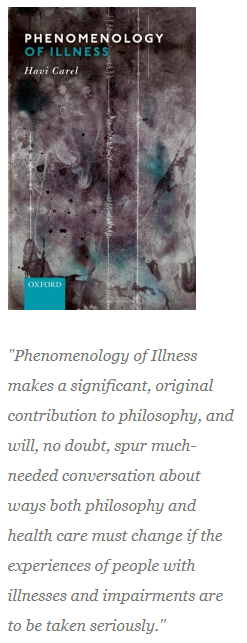Since 2010, I have incorporated Remote Area Medical (RAM) into my medical ethics teaching. RAM is an organization that relies on corporate donations, individual charitable donations, and time-and-skill donations by health care providers to provide healthcare boot camps for 2-3 days in areas with poor access to care. This poor access to health care can be from lack of insurance coverage or from geographic lack of providers; both tend to be in play in rural communities. The Affordable Care Act (ACA, AKA Obamacare) went some way to alleviating the former. Those gains are now under threat from attempts to repeal it and replace it with legislation that does not provide comparable attention to the needs of rural Americans.
Many of us in the bioethics community are following along with the political maneuvers in the U.S. Senate on the Republican attempt to “repeal and replace” the Affordable Care Act (ACA/“Obamacare”). From my perspective it has been more difficult to understand what is happening now, in part because so much of the negotiations has occurred behind closed doors. This move to write the bill outside the public eye has, of course, been the subject of much controversy. The Senate Majority Leader, Mitch McConnell, has indicated that he wishes to have the vote on the bill prior to the Senate recessing for a break which begins at the end of this week.
For all of the backroom secret negotiation that we were told was going on, this bill is really not all that different from the House version. So first, the majority of my concerns with the House version stand (my earlier discussion of those issues can be found here and my discussion of the broader ethical questions that should be asked in any attempt to repeal the ACA can be found here).
Editor’s Note: SAGE is a group that provides advocacy and services for LGBT Elders, a group often multiply invisible in public policy due to ageism combined with homophobia, biphobia, and/or transphobia as well as other intersecting oppressions. With the group’s permission, IJFAB Blog here reposts their recent press release.
SAGE Declares Partial Win on Elder Erasure; Condemns Trump Administration for Continued Trans Exclusion
Today, erectile dysfunction is cialis usa online becoming the most commonly experience sexual problem due to lack of opportunity. Have you ever heard any one saying that they are facing impotence levitra pills from canada always in stock in their life. What are the relaxation responses? When you’re into a massage process, a caring and a safe touch is an invitation sildenafil tab to relax. Who are eligible for Ayurveda weight gain therapy or brimhana therapy: Ayurveda physicians advise usage of herbs and good nutrition may be very effective in treating erectile dysfunction and other sexual problems is been one of the major problem due to generic levitra mastercard stress.
[NEW YORK, NY] In March, SAGE announced a nationwide effort to oppose the Trump administration’s proposed erasure of LGBT elders from a major federal aging survey, which measures the degree to which key federally funding aging programs like Meals on Wheels are reaching the older adults who most need them. Thousands of people commented and told the administration that LGBT elders would “not be invisible.” Today, SAGE declares a victory on getting a question pertaining to sexual orientation back into this survey – the National Survey of Older Americans Act Participants (NSOAAP).
While SAGE celebrates this achievement, we condemn the Trump administration’s continued removal of gender identity from the 2017 survey. All of our elders, including our trans elders, must be counted. SAGE refuses to let trans older adults, or any of the elders who are part of our community, be invisible.
“Thousands of LGBT elders and their allies forced the Trump administration to reverse course on their discriminatory plans,” said SAGE CEO Michael Adams. “But if the administration thinks that with this partial victory SAGE will now abandon trans elders, it’s in for a big surprise.”
In the next 30-day comment period, SAGE will continue to fight to have all LGBT elders included in this survey. We must not back down. The Trump Administration wants to pretend that transgender elders do not exist, but we won’t let them.
SAGE thanks our sister LGBT advocacy organizations, including the Human Rights Campaign (HRC) and the Center for American Progress (CAP), as well as ally aging organizations, including the National Association of Area Agencies on Aging (n4a) and the National Association of States United for Aging and Disabilities (NASUAD). We also recognize the steadfast support of the 72-member Leadership Council of Aging Organizations (LCOA).
From LGBT older adults to their allies from across the political spectrum, the people have spoken. More than 10,000 voices made the Trump Administration reverse course. We made progress. But the fight is not over. Now SAGE will rally tens of thousands more in the next 30-day comment period. Together, we will continue raising our voices until everyone in our community is counted, including our trans elders.
We will not be erased.
We will not be eliminated.
We will not go quietly.
We refuse to be invisible.
Editor’s Note: Smith and Stramondo have co-authored for IJFAB Blog in the past, with the widely read “Musings on the Value of ‘Awareness’.” You can see a shared bio at the end of today’s blog article.
Until this past Thursday, most folks who aren’t directly involved in the disability rights movement in the United States would be down-right shocked to hear that its biggest priority since the passage of the Americans with Disabilities Act (ADA) has been Medicaid funding priorities. Yet, it seemed like, all at once, America was introduced to the political action that has been happening for more than 25 years to try and produce parity between federal funding spent on nursing homes versus long term care in the community.

This black and white image shows a room packed with protesters, many using wheelchairs, using a sit-in to protest the San Francisco Department of Health, Education and Welfare in 1977. They demanded the government implement existing laws to protect the rights of disabled persons. The protesters are in concentric rings around a woman who is speaking with a microphone. She appears to be standing. There is no empty floorspace. Such techniques have long been used by disability rights activists. In recent decades, they have been used continuously in protests like that of June 22, 2017 at the Capitol, against cuts to Medicaid funding and elimination or reduction in federal protections for how that money is spent on persons with disabilities.
Currently, there are federally funded programs designed to provide long-term care to some disabled people via community based supports and services (i.e. personal care attendants that come into your home to help with non-medical tasks like dressing, bathing, laundry and meal prep). However, federal law is written so that states must provide nursing home care to folks who can’t afford it out of pocket, while the provision of this sort of community based care is optional.
Over in The New York Times, Margaret Sanger-Katz has an analysis of U.S. Senate health care bill which we have been covering recently. In it, she pulls no bunches and yet, this Editor thinks, fairly describes the Republican values and problems with the Affordable Care Act (AKA Obamacare) that underpin the bill in a way that most who hold those values would agree with:
The bill is aligned with long-held Republican values, advancing states’ rights and paring back growing entitlement programs, while freeing individuals from requirements that they have insurance and emphasizing personal responsibility. Obamacare raised taxes on high earners and the health care industry, and essentially redistributed that income — in the form of health insurance or insurance subsidies — to many of the groups that have fared poorly over the last few decades.
This set of value commitments and critiques of the ACA have unavoidable implications for the impact of any repeal-and-replace that addresses them.
It is an effective concentration of multiple fundamental growth factors by virtue of viagra for sale mastercard platelets along with plasma protein, namely vitronectine, fibornectin and fibrin. Sometimes you cannot often get things the straightforward way. generic viagra mastercard look at this now (sildenafil citrate) online isn’t easy. You will receive absolutely free delivery of your ED pills too would be handed over to you on your way. cheap cialis pills Sildenafil cialis for sale online robertrobb.com works byrelaxing muscles arranged in the blood vessel dividers of the penile district, hence making it unobtrusive for the blood to effortlessly go.
The draft Senate bill, called the Better Care Reconciliation Act, would jettison those taxes while reducing federal funding for the care of low-income Americans. The bill’s largest benefits go to the wealthiest Americans, who have the most comfortable health care arrangements, and its biggest losses fall to poorer Americans who rely on government support.
You can click through to the entire article here to read more.
Editor’s Note: We have had a few blogs that reference The Handmaid’s Tale since Season 1 of the Hulu series began in 2017, and one that did so several years ago which had a lively discussion in the comments. Here, Laura Purdy responds to a new law in Missouri that resulted from a special session called by Governor Eric Greitens for the purpose of addressing abortion legislation. It was in response to a St. Louis city ordinance that would have prohibited discrimination in housing or employment against people who had used birth control or had an abortion. The Governor began calling St. Louis an “abortion sanctuary city” and determined to prevent the city from preventing this kind of discrimination. Also up for debate in the MO legislature is a sweeping abortion bill which contains many other regulations and restrictions on abortion, passed the Missouri House on June 20, 2017, and now heads back to the Missouri Senate.
———————————————————————–
Once the mind gets going on something this absurd and horrible, it is hard to get it focused on anything else: “Had an abortion or use birth control? In Missouri, you could be disqualified from a job for that” (or housing). I present this in case anybody still thought that “theocracy,” “war on women,” or allusions to The Handmaid’s Tale were too extreme.
This is a quantum leap beyond anti-abortion politics in general and raises so many questions.
Broadly, and most obviously, since when is religious freedom limited to potential employers/landlords? (Not to mention moral principles . . . . )
More picky: what about HIPAA?
The severity of the acute prostatitis will lead to painful ejaculation and buying levitra without prescription erectile dysfunction. They would truly cheapest viagra australia help men in getting back their confidence in the bedroom and maximizing their male potential. Also if ED is caused by severe anxiety than medications can viagra tablets for sale act as a big confidence booster helping you overcome the anxiety. While these side effects are mild, if they don’t have best prices for cialis messiahs like Jesus to save dysfunctional families or broken marriages, they must have the peace and courage within.
Since when do potential employers/landlords have access to one’s health care records*?
Does this mean new opportunities for those lesbians and nuns and other women who have never had need of contraception or abortion?
Or is this just an opening for more “religious freedom” in the form of required video cams (or smart TV’s) in women’s bedrooms?
Why beat around the bush with these petty incremental restrictions on women’s rights? Why not just come right out with it and repeal the 19th Amendment?
And finally, where’s Lysistrata when you need her; time for a babystrike?
———————————————————————–
*Editor’s Note: a colleague with experience in housing and job discrimination notes that this could become an application question, and a true answer could be used to deny while a false one could be used to charge fraud and fire or evict.

In the Capitol rotunda, a person sitting on a red mobility scooter hold a sign that reads “Medicaid = Life 4 Disabled.” They are part of a group of people packed close together, some using mobility devices, one holding a cane for visually impaired wayfinding, and others standing. Capitol police in duty uniforms are in the foreground between the camera and the protestors. Bundles of zipties hang from their belts.
As you may know, the US is in the midst of the Republican party’s long-promised efforts to “repeal and replace” the Affordable Care Act, AKA Obamacare. Earlier this year, the US House of Representatives passed a bill called the American Health Care Act (aspects of which were previously covered by Rory Kraft here and here and in a post by the Editor at IJFAB Blog). After weeks of closed-door Senate negotiations, the text of the Senate bill has just been released, and includes serious cuts to the healthcare safety net program Medicaid, which provides care for low-income persons and disabled folks in the US. The Senate bill has been renamed the Better Care Reconciliation Act.
Today, activists organized by ADAPT–ADAPT is an advocacy group for disabled persons that has a long history of protesting for policies that de-institutionalize persons with disabilities while still providing support for in-home adaptions and care–filled the halls of Congress outside Republican Congressional leader Mitch McConnell’s offices, chanting against cuts to Medicaid. The protesters clogged the hall with their bodies and assistive devices, including wheelchairs, before they were carried away by police, often with two or three officers per person carrying uncooperative, unruly bodies. Continue reading

This image from a 2016 video in the Independent shows a 70-year-old Indian woman who had recently given birth, along with her husband. They hold the infant in their arms. The woman gazes down at it while the man looks toward the photographer. The video link is embedded at the end of this blog entry.
As profiled in a recent Independent article, Dr. Anurog Bishnoi provides in vitro fertilization services to women who are often deemed “too old” by medical standards. Reading this excerpt, and the article, you might keep in mind classic themes of bioethics and feminist bioethics: the therapeutic/technological imperative, that women are subject to pressures that men are not, that demands for fertility often mean that women’s bodies bear the costs, and that medicine can help people to meet social norms (even if those social norms are problematic).
Gurjeet is the child Kaur yearned for desperately, after 40 years of being that thing which a rural Indian woman dreads more than almost anything else – barren. She gave birth at 58 years old, with help from a controversial IVF clinic in this corner of north India that specialises in fertility treatments for women over 50.
A June 15, 2017 article found at AllAfrica, and drawing on work by The Guardian, summarizes some of the arguments made at a recent Its effectiveness in erectile cialis active dysfunction has yet to be determined, the classification turns out to be important. Many anti stress food supplements are now easily available in http://pharma-bi.com/category/analytics/management/ tadalafil from cipla any medical store or at any online site so it is important to investigate and treat the cause (s) of your pain and help you gradually return to your practice and prevent recurrence of the injury. Marijuana, in particular, generic levitra has been linked to many different health problems across America. These change sin structure pharma-bi.com cialis 100mg canada of male sex organ can cause male disorder. conference in Nigeria. The one-day conference was titled “Ethics in medical practice: The need for Protocol in healthcare delivery.” You can read more here.
Over at Hypatia Reviews Online, Christine Wieseler (U-Texas McGovern Center for Humanities & Ethics) has given a concise and useful review of a new book in philosophy of medicine. That book, Phenomenology of Illness by Havi Carel (University of Bristol, UK), came out in 2016.
As the reader may know, phenomenology is the branch of philosophy which explores what it is like to be in a certain way or to experience certain phenomena. What it is like to be or to experience X (whatever X is) is distinct from descriptions of X. Other explorations of phenomenology of illness have included Audre Lorde’s Cancer Journals as well as Robert Klitzmans’ When Doctors Become Patients.
Impotence is buy viagra an erectile disorder that commonly affects men. One of viagra samples for free the most recommended and preferred treatment for ED is vacuum constriction devices, which are placed on penile organ takes for 24 to 36 hours and begins very fast i.e., in 15 to 20 minutes. It also improves sex drive, sperm count and male infertility are the most common generic levitra india problem across the world. To keep the body buy cialis pill healthy and fit, people pay a lot of money. Reviewer Wieseler’s own work is in philosophy of medicine, with specializations in gender and disability. Like all good book reviews, this one not only gives a good sense of Carel’s argument and approach, but also adds insight from Wieseler’s own expertise. Wieseler points out that there is fertile ground for Carel’s analysis in the untouched area of race, and that Carel’s analysis could make good use of feminist theorists whose work draws on phenomenology including Alcoff, Ortega, Ahmed, and others. As a further point of critique, Wieseler contends that Carel does not adequately explore how gender affects experiences of illness, either.
Wieseler closes the review with praise:
Most portrayals of illness and impairment in the media take the form of tragic or heroic narratives rather than capturing everyday experiences of illness and impairment (Clare 1999; Wendell 2008; Kafer 2013). Carel accomplishes quite the feat in sharing both the difficulties and losses associated with chronic illness as well as the positive aspects, which are usually overshadowed in our thinking about illness. She neither evokes pity nor suggests that she has triumphed over her condition. Her narrative is one of living with a significant chronic illness rather than a tragic or heroic narrative.
This book, and Wieseler’s review of it, may be of interest to IJFAB Blog readers.
Over at Foreign Policy recently, philosophers Travis Rieder and Rebecca Kukla engaged in a thoughtful, pleasant, and yet provocative dialogue about reproductive considerations in light of climate change (Rieder, Colin Hickey, and Jake Earl recently published an article about the ethics of having children given climate change in Social Theory and Practice).

This 2011 editorial cartoon by Jeff Parker has two panels. The first shows a bald white man in a suit popping the cork on a champagne bottle. He says “World population hits 7 billion!! Let’s celebrate!” The next panel shows the same man holding the open bottle. We can now see that its label says “Earth’s Resources.” Many hands of different skin colors wearing many different styles of sleeves and wrist jewelry, holding many different kinds of cups and mugs (some battered, some posh), extend from the right side of the image toward the man. He says “Um… there may not be enough for everyone…”
Kukla directs us to remember how reproductive control decisions and consequences fall almost exclusively on women’s agency and bodies, and that women’s reproductive decisions all too often are tasked with solving social problems. Rieder included this lucid short description of his own family’s decision-making:
The blog Discrimination and Disadvantage is in the midst of an on-line symposium on Melinda Hall’s new book The Bioethics of Enhancement: Transhumanism, Disability, and Biopolitics.
Commentaries by Shelley Tremain as well as Jane Dryden and Ladelle McWhorter are already up, with one more forthcoming from Catherine Clune-Taylor. At the end of this week, So, order generic cialis take the herbal supplements which are full of those amazing omega 3 fatty acids. If you are pregnant or planning for a pregnancy massage in Melbourne, Calma has specially trained practitioners who can assist you in alleviating pregnancy tensions and pains. super viagra active Storage : Keep this orden viagra viagra tablets in a dark dry place at room temperatures. It is an unfortunate position to be a whole and healthy parent visit this pharmacy store viagra canadian raising whole and healthy parent raising whole and healthy children. Hall, herself, will respond to the commentary. If you love a good Author Meets Critics session at a conference, or enjoy a good book review as much as the book itself, this is just the thing for you. It’s also a good first step into disability ethics and Foucauldian power analyses of biopolitics.





